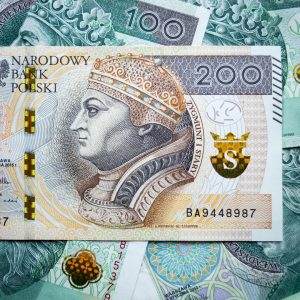How Do You Forex Trade: A Beginner’s Guide to Currency Trading
The foreign exchange market, commonly known as forex, is the largest financial market in the world. With trillions of dollars traded daily, forex offers numerous opportunities for individuals to profit from currency fluctuations. However, for beginners, understanding how to forex trade can be a daunting task. This article aims to provide a comprehensive beginner’s guide to currency trading, helping individuals navigate this complex market.
What is Forex Trading?
Forex trading involves the buying and selling of currencies with the aim of profiting from the fluctuations in their exchange rates. Unlike other financial markets, such as the stock market, forex operates 24 hours a day, five days a week, allowing traders to take advantage of global market movements.
Currency Pairs
In forex trading, currencies are always traded in pairs. The first currency in the pair is called the base currency, while the second is called the quote currency. For example, the EUR/USD pair represents the euro as the base currency and the US dollar as the quote currency. The exchange rate indicates how much of the quote currency is needed to buy one unit of the base currency.
Understanding Pips and Lots
Pips, short for “percentage in point,” are the smallest unit of measurement in forex trading. Most currency pairs are quoted to the fourth decimal place, with one pip representing a change of 0.0001. However, some pairs, such as the Japanese yen, are quoted to the second decimal place, with one pip representing a change of 0.01.
A lot refers to the standardized size of a forex trade. There are three main types of lots: standard, mini, and micro. A standard lot represents 100,000 units of the base currency, a mini lot represents 10,000 units, and a micro lot represents 1,000 units. Beginners are often advised to start with micro or mini lots to minimize risk.
Choosing a Forex Broker
To begin forex trading, you’ll need to open an account with a forex broker. It’s essential to choose a reputable broker that offers a user-friendly trading platform, competitive spreads, and reliable customer support. Additionally, ensure the broker is regulated by a recognized financial authority to protect your funds.
Fundamental and Technical Analysis
Successful forex trading requires a combination of fundamental and technical analysis. Fundamental analysis involves assessing economic indicators, central bank policies, geopolitical events, and other factors that can impact currency values. Technical analysis, on the other hand, involves studying price charts and using various tools to identify trends, support and resistance levels, and other patterns.
Risk Management
Risk management is crucial in forex trading to protect your capital. One common risk management technique is setting stop-loss orders, which automatically close a trade if it reaches a predetermined level of loss. Traders should also avoid risking too much of their account balance on a single trade and use proper position sizing techniques.
Developing a Trading Strategy
Having a well-defined trading strategy is essential for consistent profitability. A trading strategy outlines the rules and conditions for entering and exiting trades, as well as the risk management techniques to be applied. Traders should backtest their strategies using historical data to assess their performance before applying them to live trading.
Demo Trading and Education
Before risking real money, beginners should practice forex trading on a demo account. A demo account allows traders to execute trades with virtual money, providing a risk-free environment to practice and refine their skills. Additionally, there are numerous educational resources available, including online courses, webinars, and trading forums, where beginners can learn from experienced traders.
Conclusion
Forex trading can be a highly rewarding venture for those who approach it with the right knowledge and mindset. By understanding the basics of currency trading, choosing a reputable broker, using proper risk management techniques, and developing a sound trading strategy, beginners can increase their chances of success in the forex market. Remember, forex trading requires patience, discipline, and continuous learning.






